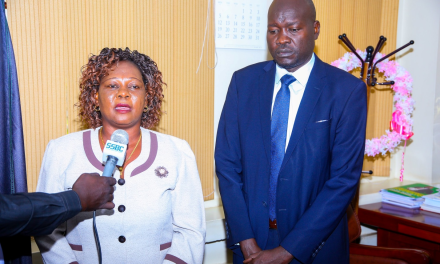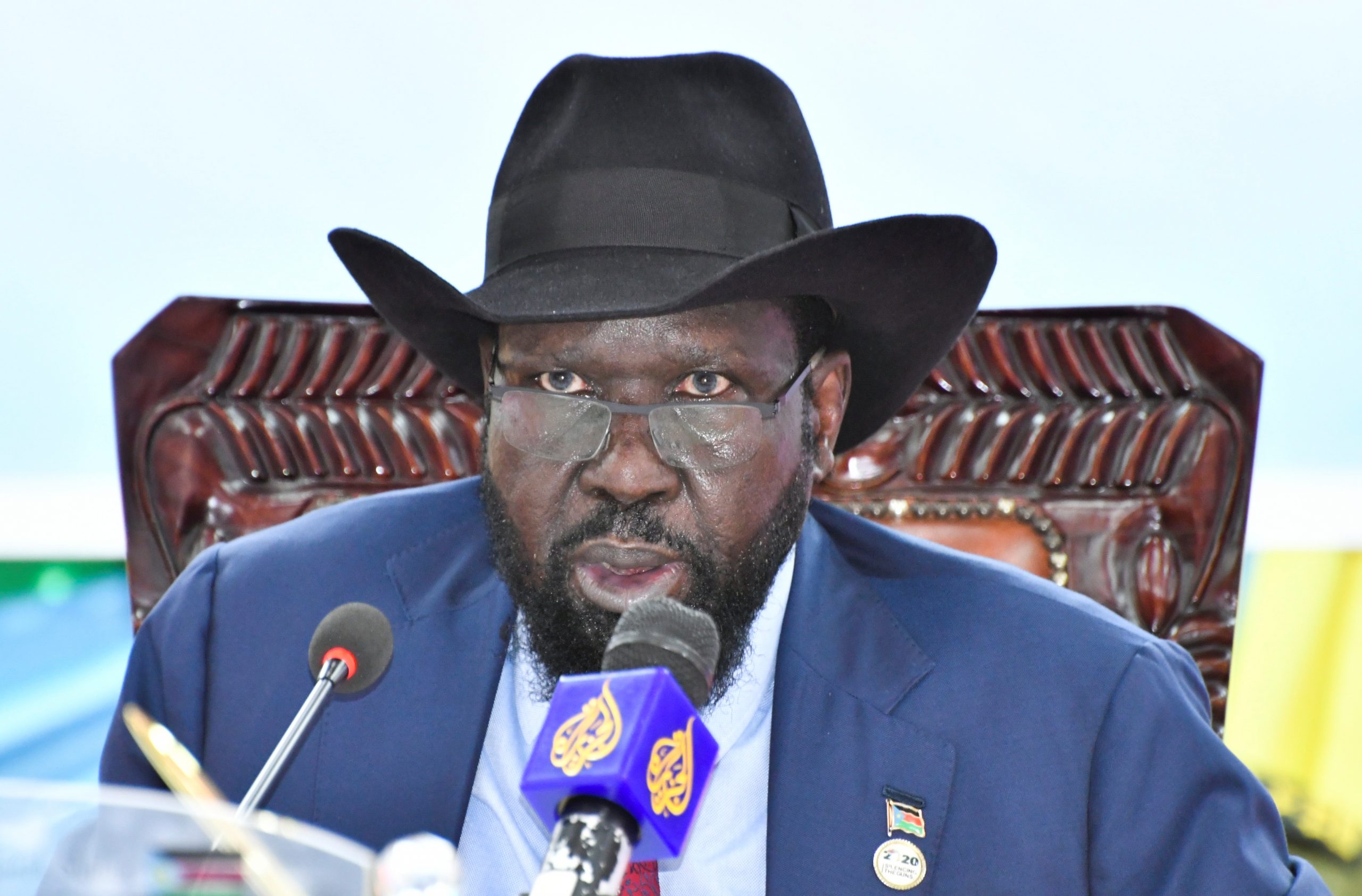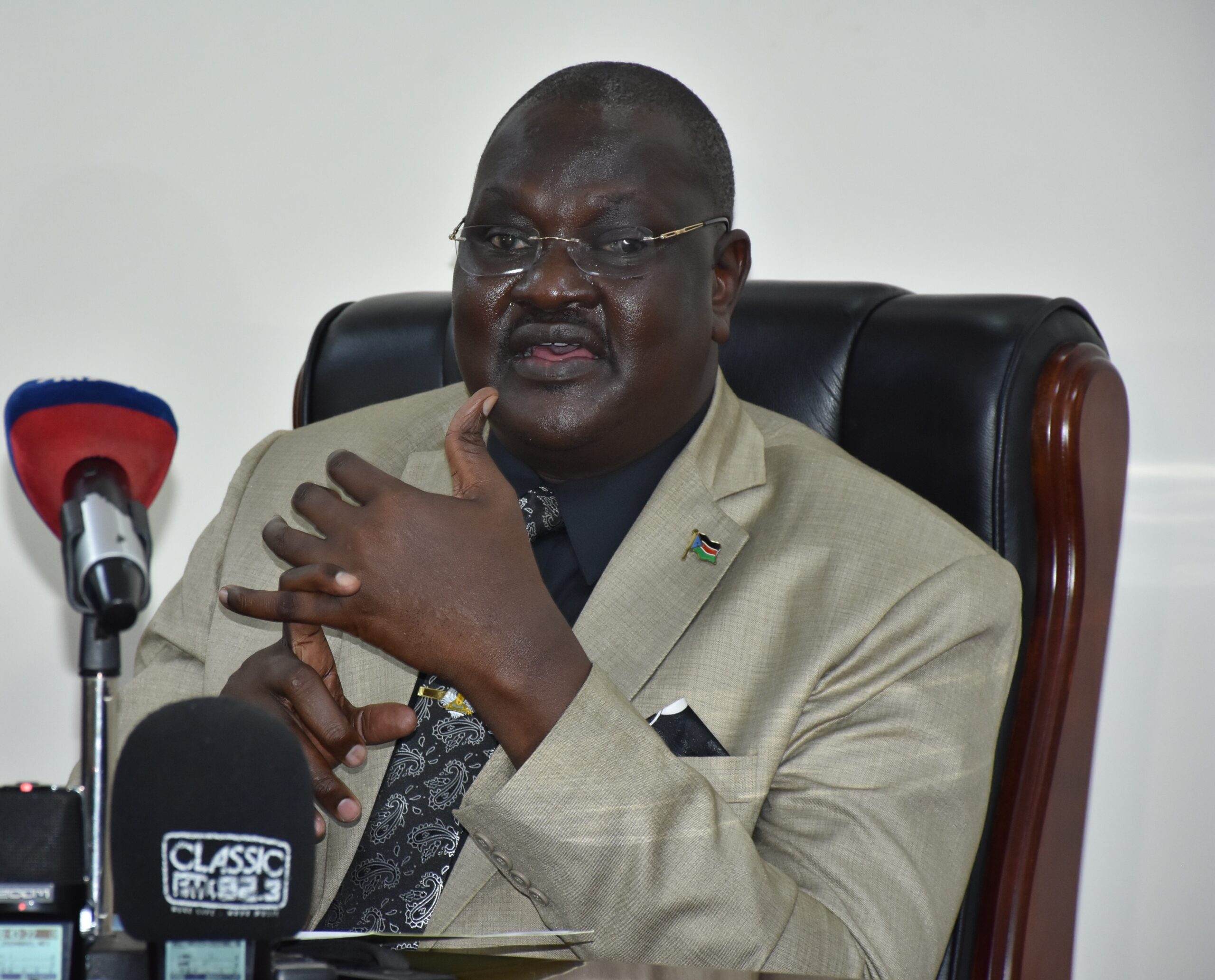
Improper waste disposal puts lives in danger in Juba, South Sudan

By: Rita James
Jerisa Iba, a restaurant owner in Juba, South Sudan, has become all too familiar with the stench of improperly managed waste. She and her neighbors have been grappling with overflowing garbage that clogs their streets and threatens their health for months. Each day, they navigate a waste management system that struggles to keep pace with their needs.
“When our waste starts to smell, we call the street boys to take it to the drainage. We give them 1,000 South Sudanese Pounds (SSP), ($1) or sometimes 2,000 South Sudanese Pounds (SSP), ($1), for carrying it,” she said. “So, when it rains, the waste is carried into the river,” she added.
Waste collection challenges
South Sudan faces significant waste management challenges due to the absence of an integrated solid waste management system. According to a 2018 JICA report, only 2.6% (34.3 tons) of the 1,337 tons of solid waste generated daily in Juba is collected https://s3.eu-west-1.amazonaws.com/logcluster-web-prod-files/public/2024-04/3.7%20South%20Sudan%2C%20Repulic%20of_Waste%20Management%20and%20Recycling%20Infrastructure%20Assessment.pdf In urban areas like Juba, waste is typically collected by municipal authorities or private companies using trucks. However, inadequate infrastructure and resources mean that waste collection coverage and frequency remain insufficient. In rural areas, waste collection systems are often nonexistent, leading to indiscriminate disposal on open ground.
Most household waste is not collected at the source due to the lack of a comprehensive waste management system, and residents often dump waste on open ground or by the roadside. This practice, coupled with a lack of awareness, contributes to a littered environment.
Mrs. Iba notes that the Juba City Council used to charge them 2,000 SSP ($1) for waste collection, but this service has since ceased.
“If the government cares about the people’s health, waste should not be kept for a month. Instead, it should be collected at least every week,” she insists.
Broader community impact
Jerisa’s struggles are part of a larger crisis in Juba, where improper waste management threatens public health and environmental safety. Rose Ropani, a resident of Munuki, shares similar concerns. In 2023, a group that collected waste from their area every Saturday, charging 3,000 SSP ($2) per household, stopped their service.
Mrs. Ropani explains that they often keep their waste at home for weeks before calling street boys to transport it to the drainage, paying them 1,500 SSP ($1). When heavy rains occur, the waste is sometimes washed into the river. “The waste smells bad and causes diseases like malaria, cough, and diarrhea in our children every week because when it rains, the waste we keep at home contributes to these problems,” Ropani adds.
She expresses doubt that the government will address the issue but is willing to pay for weekly waste collection if a truck is available. “I believe the government will not do anything for us.”
Environmental and health risks
When waste fails to reach designated disposal areas, it often ends up in rivers or other water bodies, contaminating the water and harming aquatic life. This increases water toxicity, rendering freshwater unsafe for consumption and making bodies of water hazardous for swimmers.
Pollutants can spread across different areas, further contaminating additional water sources, according to Clean Management Environmental Group. https://cleanmanagement.com/blog/how-improper-waste-disposal-affects-the-environment/ additionally, waste contributes to the accumulation of greenhouse gases, impacting the global climate by thickening the ozone layer.
South Sudan’s waste management issues also affect health, particularly for children and the elderly. The lack of sufficient waste collection trucks in Juba’s residential areas, markets, and streets exacerbates these problems. The country also lacks a comprehensive system for safely disposing of hazardous waste, with inadequate infrastructure leading to improper disposal methods like open burning or dumping, which releases harmful substances into the environment.

Mrs. Ataya pouring waste on the running water during rain (Photo credit Rita James)
Efforts that never yielded
To address these issues, the government launched the East Africa Go-Green initiative https://theradiocommunity.org/jcc-contract-go-green-east-africa-to-collect-garbage-in-juba on July 4, 2022, during World Environment Day. Former Central Equatoria State Governor, His Excellency Emmanuel Adil Anthony, supported this initiative with an executive order criminalizing littering in Juba and other towns in Central Equatoria State. The order also designated every Saturday as a city-wide cleaning day, requiring residents to clean their surroundings and plant at least three trees per household. https://www.eyeradio.org/governor-adil-issues-order-criminalizing-littering/
The East Africa Go-Green Company, announced by the Minister of Environment and Forestry, Josephine Napwon, was contracted to collect garbage weekly and make special arrangements for VIP areas and large hotels.
Juba City Council Mayor Michael Ladu Allah Jabu expressed hope that this partnership would alleviate garbage accumulation in various parts of the city.
However, the progress was halted when former Mayor Michael Lado Thomas Allah-Jabu announced the termination of the contract with East Africa Go-Green https://www.sudanspost.com/govt-terminates-contract-with-east-african-company-after-failure-to-make-juba-clean/
On June 7, 2023. The city council accused the company of failing to meet its waste collection obligations, resulting in increased waste and a decline in environmental cleanliness throughout Juba.
In response, the Juba City Council took over waste management responsibilities. The sudden halt of East Africa Go-Green’s services has worsened the city’s cleanliness issues. On July 19, 2021, the council introduced new tax rates to support waste management, with former Mayor Kalisto Ladu Nyiglo assuring traders about the affordability of these taxes. https://www.radiotamazuj.org/en/news/article/governor-adil-directs-juba-city-council-to-prioritize-cleanness
Additionally, to combat littering and improper waste disposal, The Office of the Mayor – Juba City Council – Central Equatoria State issued local order No. 13/2022 This order enforces strict regulations on waste disposal along streets and in front of businesses and residences, with fines of 200,000 SSP ($45) for non-compliance.
Data Source: Juba City Council
On November 22, 2022, the Juba City Council launched the “Solid Waste Management Master Plan in Juba City 2021-2030.” https://www.jica.go.jp/Resource/south_sudan/english/office/topics/fh2q4d000000rbey-att/221122_04.pdf
This comprehensive plan, initially drafted in 2014 with Japan International Cooperation Agency (JICA) support and updated in 2022, aims to provide a long-term solution to Juba’s waste management challenges. This plan represents a critical step toward a cleaner, more sustainable future for the city but it has not yielded much.
Despite these efforts, communities continue to suffer from inadequate waste management, prompting calls for a reevaluation of the city’s waste management strategies.
Local communities’ appeals
Tukube Alison, another Juba resident, laments that while waste collection trucks were once available, they have stopped operating. “Juba City Council has been trying, but waste remains in other markets,” he says.
“I appeal to the national government to bring in more waste collection companies. Keeping waste at home and burning it is unhealthy and leads to airborne diseases,” he further notes.
Betty Ile, a mother of one, reports that her family sometimes burns waste or takes it to the drainage due to the lack of garbage trucks.
“We keep the waste in our area because the garbage truck doesn’t come. If it fails to arrive, we burn our waste or take it to the drainage,” she explains.
She highlights health issues such as diarrhea and malaria linked to poor waste disposal and calls for authorities to provide garbage trucks and large containers for waste disposal, advocating for weekly collection.
Challenges with infrastructure and expertise
The inefficiency of waste collection services is compounded by a lack of expertise to repair specialized vehicles like compactors.
Spare parts for these vehicles are not readily available locally. Additionally, the density of paved roads in South Sudan is about 0.2 km for every 1,000 km², leaving most roads between homes muddy, especially during the rainy season.
This makes it difficult for waste collection fleets to access residential areas, according to the African Development Bank (ADB) Group 2018. https://www.google.com/search?client=firefox-b-d&q=African+Development+Bank+%28AfDB%29+Group++on+waste+managgement+in+South+Sudan
Call to action
The ongoing waste management crisis in Juba requires urgent intervention and a coordinated effort from both local authorities and the national government. Residents are calling for immediate and effective solutions to address the inadequacies of the current waste management system.
Jerisa Iba stresses the need for more frequent waste collection: “If the government cares about the people’s health, waste should not be kept for a month. Instead, it should be collected at least every week.”
Rose Ropani emphasizes the urgency of regular waste collection: “I believe the government will not do anything for us. I am willing to pay for weekly waste collection if a truck is available.”
Tukube Alison highlights the need for more waste collection companies and infrastructure improvements: “Juba City Council has been trying, but waste remains in other markets. I appeal to the national government to bring in more waste collection companies. Keeping waste at home and burning it is unhealthy and leads to airborne diseases.”
Betty Ile calls for better waste management resources: “We need garbage trucks and large containers for waste disposal. Weekly collection would be ideal to prevent health issues like diarrhea and malaria linked to poor waste disposal.”
The introduction of the “Solid Waste Management Master Plan in Juba City 2021-2030” represents a step in the right direction, but real change requires the implementation of this plan and sustained commitment from all stakeholders. It is crucial for the government to prioritize waste management, invest in infrastructure, and ensure that waste collection services are reliable and effective. Only through collective action Juba can hope to overcome its waste management crisis and achieve a cleaner, healthier environment for its residents.
This story was produced with support from InfoNile, an arm of Water Journalists Africa in the Nile basin.





































